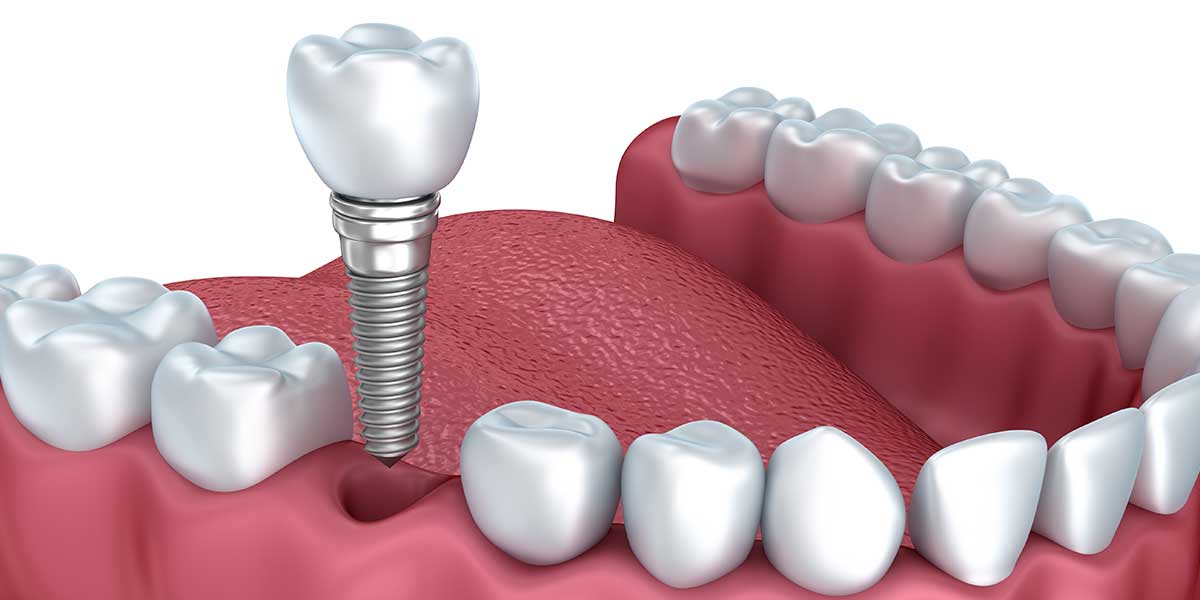Weakened Bones
A tooth root travels deep into the jaw and naturally stimulates bone growth. A missing tooth interrupts this process, weakening bone density and structure. Long term, patients risk developing facial deformities.
Shifting Teeth
After a while, the teeth around the gap move and adjust, a process known as malocclusion. Beyond the visual, this affects your bite strength and places greater stress on your jawbone and existing teeth. Many patients also experience difficulties eating, chewing and speaking.
Poor Dental Hygiene
Patients have a harder time cleaning angled or drifted teeth. As a result, insufficient dental hygiene may lead to tooth decay and gum disease over time.
Basics of Single-Tooth Implants
Single-tooth implants have become a popular solution over traditional dentures. A single-tooth implant adjusts the look of your smile, helps maintain bite strength and stimulates bone growth.
Single-tooth implants offer many of the same benefits as multi-tooth implants and bridges. They provide a solid foundation for a fixed or removable tooth with a titanium anchor that replaces the roots. Over the course of a few months, the anchor fuses to the existing bone structure in a process called osseointegration. From here, an abutment post and new replacement tooth are inserted.
Single-tooth implants do have a few key differences:
- Your dentist creates a custom-made dental crown that will blend in with your existing teeth and attach to the abutment.
- Most single-tooth procedures can be completed in a day’s time, rather than multiple visits and a long wait for the anchor to secure.
- It does not involve or affect the surrounding teeth.
Compared to other restorations, single-tooth implants:
- Are easier to clean than bridges or dentures.
- Preserve the remaining bone and bite strength better.
- Are less likely to result in receding gums, which can expose the metal below.
- Are not fully dependent on cement.
Receiving a Single-Tooth Implant
To evaluate your candidacy, a dentist will start with a comprehensive oral exam, also factoring in your medical and dental history. If you are a good candidate for single-tooth implants, X-rays will be taken of the area to make an impression of your teeth and gums. This information is used to create a replacement tooth and also indicates how much jawbone is left to support the rod and implant.
During the procedure, the rod is secured before the abutment and implant are added. This process takes significantly less time than traditional implants, but patients should still expect some tenderness afterwards. You may be prescribed pain medication and told to eat softer foods during the healing process. With appropriate care, the crown and rod should last for many years.
Who’s a Candidate for Single-Tooth Implants?
Generally, patients need to have sufficient bone tissue in the jaw, otherwise there won’t be enough vertical strength to hold the single-tooth implant in place. Although the implant is not dependent on surrounding teeth, those with signs of decay and other oral health issues are a concern.
Are you experiencing pain following a recent implant procedure? Don’t wait. We see emergencies same day!

